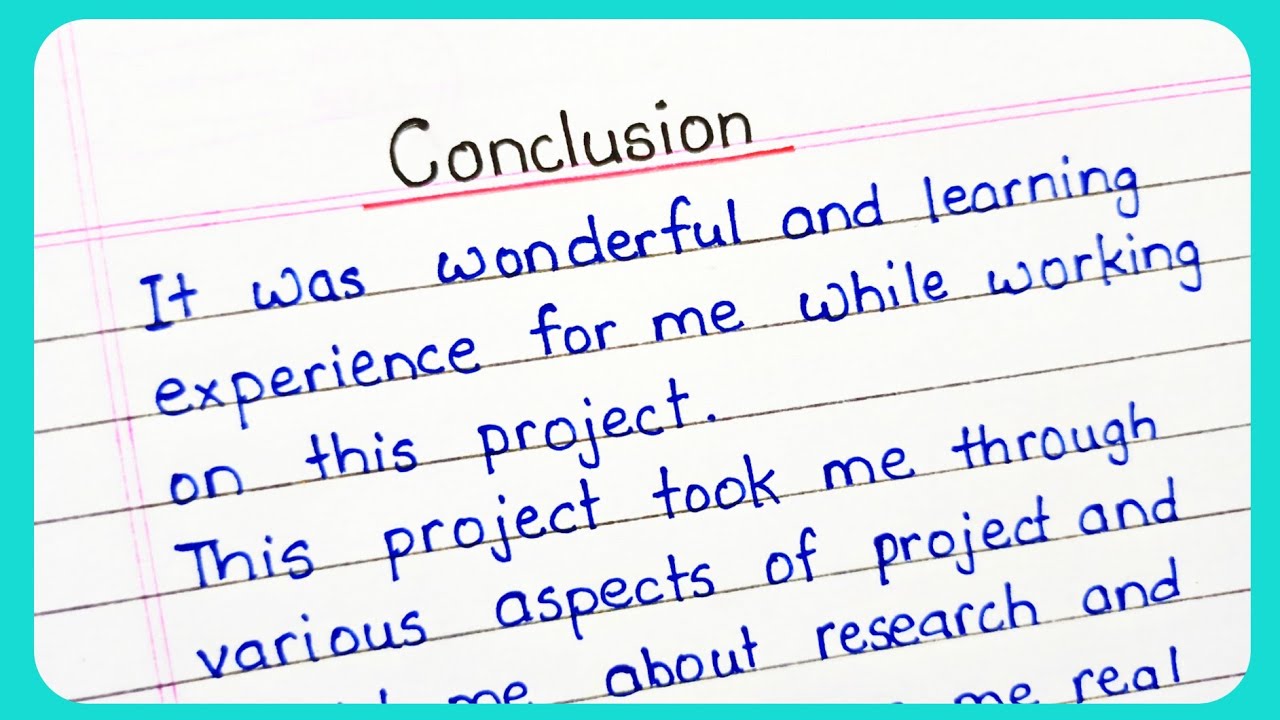
Ever wondered why conclusions are so important? They wrap up your thoughts, leaving readers with a lasting impression. Think of them as the final puzzle piece that completes the picture. Without a strong conclusion, your message might feel unfinished or unclear. But what makes a conclusion effective? It should summarize key points, restate the main idea in a fresh way, and sometimes offer a call to action. Whether you're writing an essay, a report, or even a blog post, mastering the art of the conclusion can make your work shine. Ready to learn some fascinating facts about conclusions? Let's dive in!
Key Takeaways:
- Conclusions are essential in writing, speeches, and stories, providing closure and leaving a lasting impact on readers.
- Effective conclusions summarize key points, offer solutions, and avoid common mistakes to make them more memorable and impactful.
The Concept of Conclusions
Conclusions wrap up thoughts, ideas, or arguments. They provide closure and often summarize key points. Here are some interesting facts about conclusions.
-
Conclusions are essential in essays, speeches, and presentations. They help reinforce the main message and leave a lasting impression.
-
The word "conclusion" comes from the Latin word "concludere," which means "to shut up" or "to close."
-
In scientific research, conclusions summarize findings and suggest future research directions.
-
Conclusions in stories or novels often resolve conflicts and tie up loose ends, providing a sense of closure for readers.
-
In legal documents, conclusions can determine the outcome of a case, summarizing the judge's or jury's decision.
Importance of Conclusions in Writing
Conclusions play a crucial role in writing. They help readers understand the significance of the content and provide a sense of completeness.
-
A strong conclusion can leave a lasting impact on readers, making the content more memorable.
-
Conclusions often restate the thesis or main argument, reinforcing the writer's point of view.
-
In persuasive writing, conclusions can include a call to action, urging readers to take specific steps or change their opinions.
-
Effective conclusions can help clarify complex ideas, making them easier for readers to understand.
-
In academic writing, conclusions can highlight the importance of the research and its implications for the field.
Techniques for Writing Effective Conclusions
Various techniques can make conclusions more impactful and engaging. Here are some methods writers use to craft strong conclusions.
-
Summarizing key points helps reinforce the main ideas and ensures readers remember the most important information.
-
Using a quote can add authority or emotional impact to a conclusion, making it more memorable.
-
Asking a rhetorical question can provoke thought and encourage readers to reflect on the content.
-
Offering a solution or recommendation can provide practical value and leave readers with actionable insights.
-
Ending with a strong statement or a memorable phrase can create a lasting impression and emphasize the main message.
Common Mistakes in Writing Conclusions
Avoiding common mistakes can improve the quality of conclusions and make them more effective.
-
Introducing new information in a conclusion can confuse readers and detract from the main message.
-
Being too repetitive can make a conclusion feel redundant and boring, losing the reader's interest.
-
Failing to provide closure can leave readers feeling unsatisfied and uncertain about the content's significance.
-
Using vague or generic language can weaken a conclusion, making it less impactful and memorable.
-
Overloading the conclusion with too many ideas can make it difficult for readers to grasp the main message.
Examples of Famous Conclusions
Some famous conclusions have left a lasting impact on readers and audiences. Here are a few notable examples.
-
Martin Luther King Jr.'s "I Have a Dream" speech ends with a powerful vision of equality and justice, inspiring generations.
-
The conclusion of Charles Dickens' "A Tale of Two Cities" provides a poignant and memorable resolution to the story's conflicts.
-
Abraham Lincoln's Gettysburg Address concludes with a call for national unity and the enduring importance of democracy.
-
The final lines of J.K. Rowling's "Harry Potter" series offer a sense of closure and hope for the future of the characters.
-
The conclusion of Winston Churchill's "We Shall Fight on the Beaches" speech leaves a lasting impression of resilience and determination.
Fun Facts About Conclusions
Conclusions can be fascinating and surprising. Here are some fun facts you might not know.
- In some cultures, traditional stories and folktales often end with a moral or lesson, providing a conclusion that teaches valuable life lessons.
The Final Word on Facts
Facts shape our understanding of the world. They help us make informed decisions, spark curiosity, and fuel conversations. Whether it's a quirky tidbit about animals, a surprising historical event, or a mind-blowing scientific discovery, facts enrich our lives. They remind us there's always something new to learn.
By sharing these 26 facts, we've hopefully ignited your interest and maybe even taught you something new. Keep exploring, questioning, and seeking out the truth. The world is full of wonders waiting to be uncovered. Facts are more than just trivia; they're the building blocks of knowledge.
So, next time you stumble upon an interesting fact, share it. You never know whose day you might brighten or whose curiosity you might spark. Stay curious, stay informed, and keep the love for learning alive.
Frequently Asked Questions
Was this page helpful?
Our commitment to delivering trustworthy and engaging content is at the heart of what we do. Each fact on our site is contributed by real users like you, bringing a wealth of diverse insights and information. To ensure the highest standards of accuracy and reliability, our dedicated editors meticulously review each submission. This process guarantees that the facts we share are not only fascinating but also credible. Trust in our commitment to quality and authenticity as you explore and learn with us.
